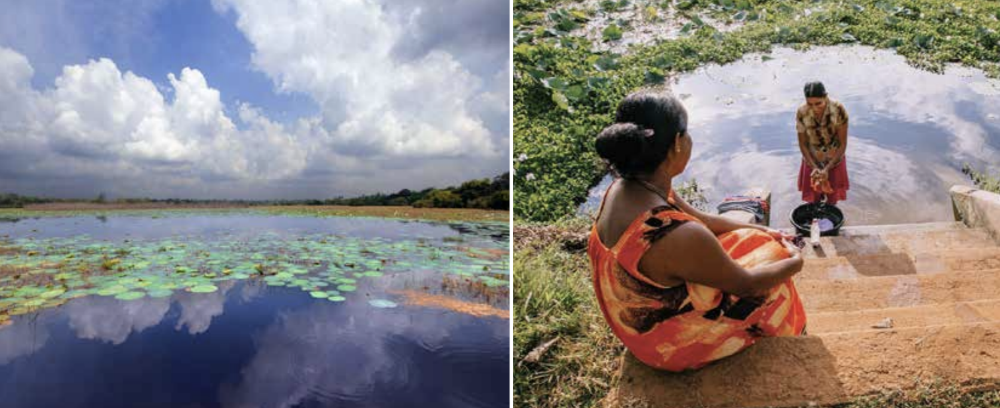Twenty years after the World Commission on Dams Report, and in the face of a growing freshwater storage gap, GWP and IWMI are calling for new thinking around freshwater storage. The Perspectives Paper outlines an integrated water storage agenda for resilient development in a world that is increasingly characterised by water stress and climate uncertainty and variability.
"We want to highlight a new agenda on water storage to support resilient development, and this paper explores the different options we have, and the opportunities that water storage services offer,” said GWP Interim Executive Secretary Peter Repinski in his opening remarks at the launch. He added that the event marked the start of what is to become a year-long discussion, significant to GWP because of its 25th anniversary.
Mark Smith, Director General of IWMI, said that while there is a tendency to equate water storage challenges with engineering and political navigation, the issue is broader than that. "In truth, it is about both those things. But as the paper lays out, with greater understanding also comes recognition that water storage is part of a set of systemic challenges. By stepping back and looking at the bigger picture, we see that water storage comprises of a wider set of options, and from that new opportunities and new solutions open up to us."
The authors behind the paper are Winston Yu (World Bank and GWP Technical Committee Member), William Rex (IWMI), Matthew McCartney (IWMI), Stefan Uhlenbrook (IWMI), Rachel von Gnechten (IWMI), and Jerome Delli Priscoli (GWP Technical Committee Chair).
Winston Yu explained the key issues in the paper and summarized the highlights:
- There is a need for a new agenda on storage to support resilient development
- Growing storage gaps will limit socio-economic development
- Storage of all types are available and need to be better integrated, taking a service perspective
There is a perception that storage is only about dams, said Yu, but the question is more complex than that. Water is stored in both natural and built systems above and below ground, which interact in planned and unplanned ways. Therefore, strategic approaches to storage need to focus on the services enabled – urban water supply, food security, healthy environments, energy, etc. – more than the quantity of water retained. To respond to this, the Paper calls for a new agenda – and Yu stressed that it is a huge agenda to take on – to support resilient development:
- Develop a framework for rethinking water storage as an integrated service
- Improve the inventory of water storage and its attributes
- Unpack the effectiveness of nature-based solutions and co-dependencies
- Assess the socio-economic costs and benefits (including co-benefits) of integrated storage systems
- Develop innovative approaches to water storage
- Optimize integrated storage planning and operations
A panel discussion followed Yu’s presentation, moderated by James Dalton of the International Union for Conservation of Nature (IUCN). The panelists were George Annandale (Engineering Consultant), Akissa Bahri (Former Minister of Agriculture – Tunisia), Pamela Collins (Conservation International), Julien Harou (Manchester University) and Tom Panella (Asian Development Bank).
During the lively discussion, over 50 questions were raised, ranging from changing how we think about water storage overall and the need for systematic overhaul, to understanding institutional challenges and social considerations. The organisers are committed to formulating responses to all the questions received to further the discussion.

